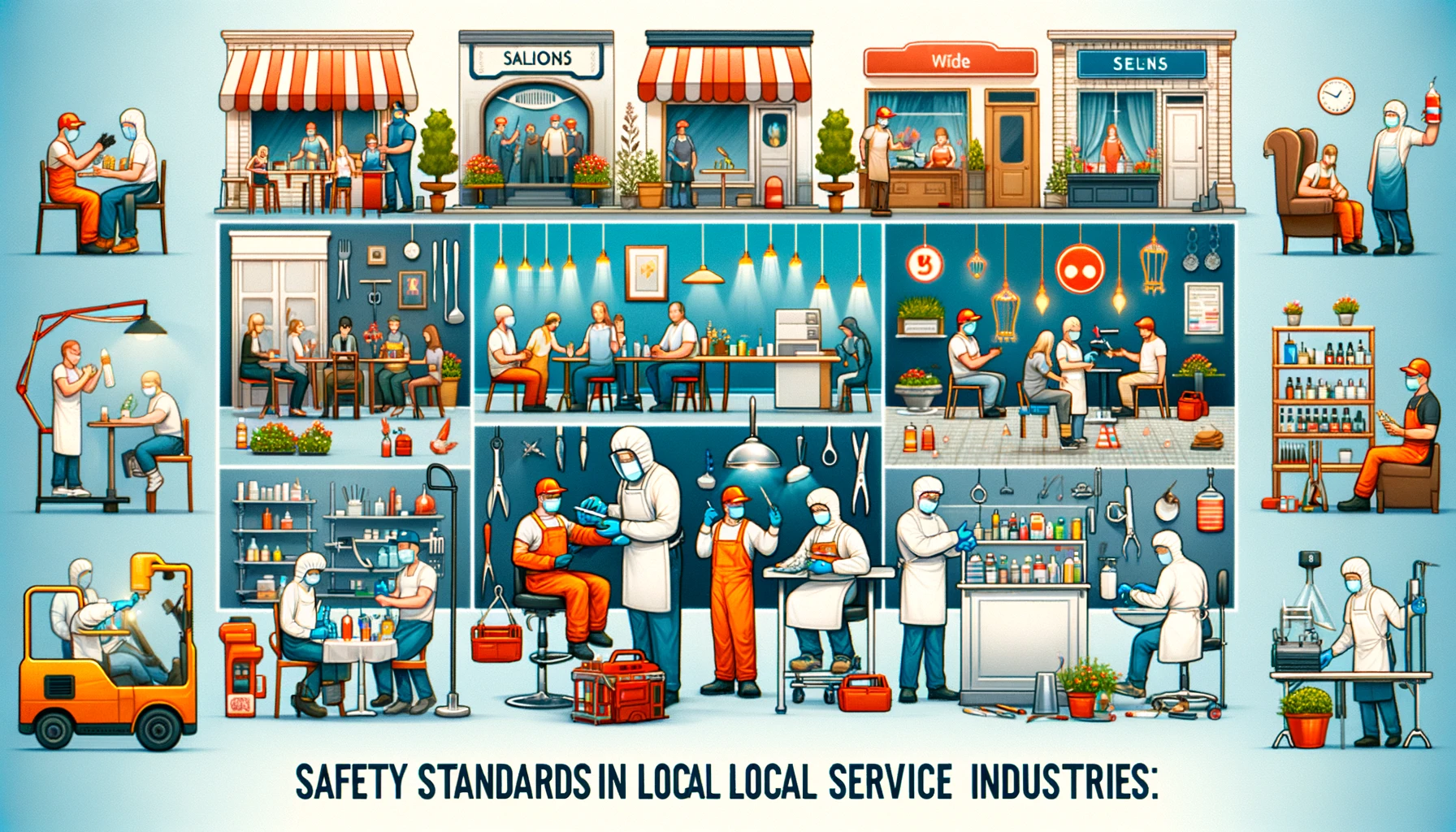In the tapestry of local service industries, from the bustling kitchen of your favorite diner to the construction site shaping the community’s skyline, safety standards serve as the backbone of operational integrity.
These standards are not mere guidelines but crucial protocols that ensure the health and safety of workers and consumers alike.
This article aims to shed light on the pivotal role of safety standards in local service industries, illustrating how they underpin quality service delivery and foster trust within the community.
Understanding Safety Standards

Safety standards encompass the set of rules, regulations, and procedures designed to prevent accidents and injuries in the workplace.
They cover a broad spectrum of considerations, from food handling practices in restaurants to protective gear in construction.
Regulatory bodies, such as the Occupational Safety and Health Administration (OSHA) in the United States, play a vital role in setting these standards and ensuring compliance to protect workers and the public.
The Impact of Safety Standards on Service Quality

Adherence to safety standards is directly linked to the quality of service provided by local businesses.
For example, in the food service industry, compliance with health and safety regulations ensures that meals are not only delicious but safe to consume.
Similarly, in personal care services like salons and spas, following hygiene protocols protects clients from potential health risks.
High safety standards elevate the overall customer experience, contributing to business reputation and success.
Safety Standards and Worker Protection

The welfare of employees in local service industries is paramount.
Safety standards are designed to mitigate occupational hazards, providing a safe working environment for everyone from kitchen staff to electricians.
These measures include proper training, use of protective equipment, and adherence to safe work practices, which collectively reduce the risk of accidents and occupational illnesses.
Consumer Confidence and Safety Standards

Consumer trust in local services is heavily influenced by perceptions of safety.
Businesses that prioritize and transparently adhere to safety standards not only comply with regulations but also signal to customers their commitment to well-being.
This trust is foundational to building a loyal customer base and ensuring the long-term viability of local businesses.
Challenges in Implementing Safety Standards

Despite their importance, local businesses often grapple with challenges in implementing safety standards.
Financial constraints can hinder the adoption of necessary safety equipment or training programs.
Moreover, navigating the complexity of regulatory requirements demands expertise that small businesses may lack.
Overcoming these hurdles requires support from the community and targeted resources for small businesses.
Best Practices for Local Businesses

To effectively meet and exceed safety standards, local businesses can adopt several best practices.
Regular training sessions keep employees informed about safety protocols, while periodic compliance audits ensure ongoing adherence to regulations.
Engaging customers through feedback mechanisms can also highlight areas for improvement, reinforcing the business’s commitment to safety.
Community Benefits of High Safety Standards

Stringent safety standards extend benefits beyond individual businesses, contributing to the broader health and economic stability of the community.
They protect public health, prevent accidents, and reduce the burden on healthcare systems.
Moreover, they contribute to a positive business climate, attracting investment and encouraging entrepreneurship.
Conclusion
The integrity of local service industries is deeply intertwined with the observance of safety standards.
These protocols are not just regulatory requirements but are essential to ensuring quality, protecting workers and consumers, and building a trustworthy business reputation.
As community members, supporting businesses that prioritize safety standards reinforces a culture of care and responsibility.
Together, we can advocate for and uphold high safety standards, ensuring our local economies not only thrive but do so on the foundation of safety and well-being.
